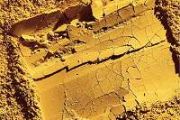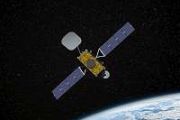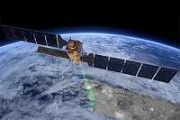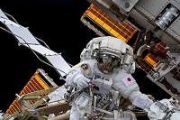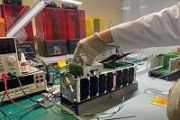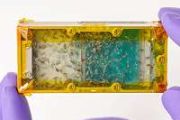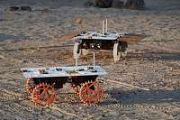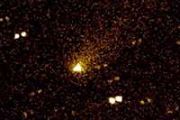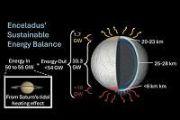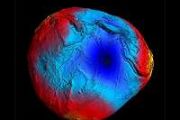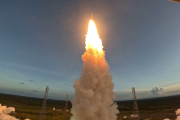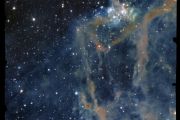
Copernical Team
Pakistani satellite joins two others in successful launch
 China's Long March 2D carrier rocket successfully deployed three satellites into their designated orbits during a launch on Friday afternoon. The mission, conducted at 12:07 pm from the Jiuquan Satellite Launch Center in the Inner Mongolia autonomous region, included the deployment of the Tianlu 1, PRSC-EO1, and Lantan 1 satellites, according to China Aerospace Science and Technology Corp, the r
China's Long March 2D carrier rocket successfully deployed three satellites into their designated orbits during a launch on Friday afternoon. The mission, conducted at 12:07 pm from the Jiuquan Satellite Launch Center in the Inner Mongolia autonomous region, included the deployment of the Tianlu 1, PRSC-EO1, and Lantan 1 satellites, according to China Aerospace Science and Technology Corp, the r SpaceX set to launch Hisdesat's SpainSat NG I satellite on January 28
 The SpainSat NG I secure communications satellite, owned by the Spanish governmental operator Hisdesat, is scheduled to launch on January 28. SpaceX, the U.S.-based aerospace company, will carry out the mission, utilizing its Falcon 9 rocket to place the satellite into orbit from Cape Canaveral, Florida.
The launch is slated for the evening of January 28 in the United States, which corresp
The SpainSat NG I secure communications satellite, owned by the Spanish governmental operator Hisdesat, is scheduled to launch on January 28. SpaceX, the U.S.-based aerospace company, will carry out the mission, utilizing its Falcon 9 rocket to place the satellite into orbit from Cape Canaveral, Florida.
The launch is slated for the evening of January 28 in the United States, which corresp Professor's Classroom Is Where Critical Thinking Meets Space Policy
 Cadets from different academic disciplines credit U.S. Air Force Academy Department of Political Science Professor Madison Walker with stoking their passion for space law, policy and research.
Cadet 1st Class Anjulina Abdon, a Political Science major, worked with the space policy professor on her space deterrence theory capstone project during the fall. Abdon will attend U.S. Air Force rem
Cadets from different academic disciplines credit U.S. Air Force Academy Department of Political Science Professor Madison Walker with stoking their passion for space law, policy and research.
Cadet 1st Class Anjulina Abdon, a Political Science major, worked with the space policy professor on her space deterrence theory capstone project during the fall. Abdon will attend U.S. Air Force rem Peak Performance in Microgravity
 At the start of a new year, many people think about making positive changes in their lives, such as improving physical fitness or learning a particular skill. Astronauts on the International Space Station work all year to maintain a high level of performance while adapting to changes in their physical fitness, cognitive ability, sensory perception, and other functions during spaceflight.
R
At the start of a new year, many people think about making positive changes in their lives, such as improving physical fitness or learning a particular skill. Astronauts on the International Space Station work all year to maintain a high level of performance while adapting to changes in their physical fitness, cognitive ability, sensory perception, and other functions during spaceflight.
R OP-ED: John Glenn Is Back
 Some things just come full circle. In 1962, a no-nonsense test pilot with a gleaming bald head and steely determination strapped himself into a Mercury capsule and became the first American to orbit Earth. Now, 62 years later, another bald maverick with that same unwavering grit just launched a 322-foot rocket bearing Glenn's name straight into orbit - and did it on the first try.
Jeff Bez
Some things just come full circle. In 1962, a no-nonsense test pilot with a gleaming bald head and steely determination strapped himself into a Mercury capsule and became the first American to orbit Earth. Now, 62 years later, another bald maverick with that same unwavering grit just launched a 322-foot rocket bearing Glenn's name straight into orbit - and did it on the first try.
Jeff Bez Malargue antenna upgrade boosts data capacity
 The Malargue deep-space communication station in Argentina has undergone a significant upgrade, enhancing its data transmission capabilities by nearly 80%. Completed in late July 2024, this improvement is set to meet the growing demands of deep-space missions and increasing international requests.
As deep-space exploration intensifies, the need for ground stations to handle larger and more
The Malargue deep-space communication station in Argentina has undergone a significant upgrade, enhancing its data transmission capabilities by nearly 80%. Completed in late July 2024, this improvement is set to meet the growing demands of deep-space missions and increasing international requests.
As deep-space exploration intensifies, the need for ground stations to handle larger and more Stoke Space secures $260M in Series C Funding
 Stoke Space, a leading company advancing fully reusable medium-lift rocket technology, has announced a successful $260 million Series C funding round. This latest investment more than doubles the company's total funding to $480 million, fueling its ongoing development and expansion efforts.
The funding round included participation from a mix of new and returning investors such as Breakthro
Stoke Space, a leading company advancing fully reusable medium-lift rocket technology, has announced a successful $260 million Series C funding round. This latest investment more than doubles the company's total funding to $480 million, fueling its ongoing development and expansion efforts.
The funding round included participation from a mix of new and returning investors such as Breakthro MSU researcher's breakthrough model sheds light on solar storms and space weather
 Our sun is essentially a searing hot sphere of gas. Its mix of primarily hydrogen and helium can reach temperatures between 10,000 and 3.6 million degrees Fahrenheit on its surface and its atmosphere's outermost layer. Because of that heat, the blazing orb constantly oozes a stream of plasma, made up of charged subatomic particles - mainly protons and electrons. The sun's gravity can't contain t
Our sun is essentially a searing hot sphere of gas. Its mix of primarily hydrogen and helium can reach temperatures between 10,000 and 3.6 million degrees Fahrenheit on its surface and its atmosphere's outermost layer. Because of that heat, the blazing orb constantly oozes a stream of plasma, made up of charged subatomic particles - mainly protons and electrons. The sun's gravity can't contain t On the path to defining a new second
 The future of timekeeping is being reshaped by optical atomic clocks, which operate with laser frequencies roughly 100,000 times faster than the microwave frequencies of caesium clocks, the current standard for defining the second in the International System of Units (SI). Some of these optical clocks are already 100 times more accurate than caesium clocks and are poised to redefine the second.
The future of timekeeping is being reshaped by optical atomic clocks, which operate with laser frequencies roughly 100,000 times faster than the microwave frequencies of caesium clocks, the current standard for defining the second in the International System of Units (SI). Some of these optical clocks are already 100 times more accurate than caesium clocks and are poised to redefine the second. Bioactive compounds with industrial applications discovered in Andes bacteria
 Researchers have analyzed biofilm produced by bacteria from the El Medano hot springs in Chile's central Andes, discovering that a key component has potential applications as a natural additive in the pharmaceutical and food industries. The study was recently published in the journal Scientific Reports.
The key component, an exopolysaccharide (EPS), is a cluster of extracellular carbohydra
Researchers have analyzed biofilm produced by bacteria from the El Medano hot springs in Chile's central Andes, discovering that a key component has potential applications as a natural additive in the pharmaceutical and food industries. The study was recently published in the journal Scientific Reports.
The key component, an exopolysaccharide (EPS), is a cluster of extracellular carbohydra 
